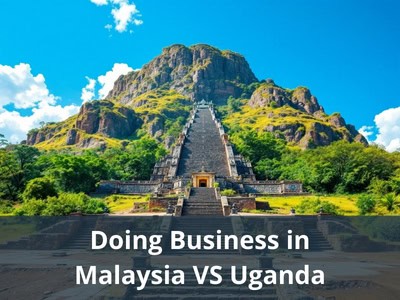Ready to Expand into India? Choose 3E Accounting Today!
Stay Secure, Stay Successful With 3E Accounting Services

Here’s a quick overview of the key differences for easy reference.
| Factor | Malaysia | Uganda |
|---|---|---|
| Business Environment | Stable, investor-focused, transparent | Improving, but affected by governance and enforcement issues |
| Corporate Tax Rate | 24% | 30% |
| Capital Gains Tax | No | Yes |
| Ease of Incorporation | Fully digital, fast approval | Online registration available, but slower for foreigners |
| Business Costs | Low cost of labor, rent, utilities | Low labor cost, but higher infrastructure-related expenses |
| Market Access | ASEAN, RCEP, CPTPP markets | EAC, COMESA markets |

Selecting the right partner is crucial when it comes to starting a business in Malaysia. At 3E Accounting, we offer a comprehensive range of solutions designed to simplify the entire process of company incorporation in Malaysia. From ensuring compliance with local regulations to providing expert guidance tailored to your specific needs, we make the journey seamless.
For entrepreneurs looking to navigate Malaysia company registration or explore company setup in Malaysia, our team provides unmatched expertise and support. Additionally, our company incorporation services are tailored to help you succeed in the competitive business environment.
With a deep understanding of the region’s business landscape, we also provide resources for setting up businesses in Malaysia, ensuring that every step is clear and efficient. Whether you need assistance with corporate secretarial or company secretary services, we are here to help.
To explore our services or discuss your business needs, contact 3E Accounting. With our strong presence in Malaysia and a proven track record, we are your trusted partner for success in Asia.
Stay Secure, Stay Successful With 3E Accounting Services
Answer: Malaysia offers lower tax rates, better infrastructure, and broader market access. See this guide on starting a business in Malaysia for more details.
Answer: Yes. Malaysia’s process is fully digital and efficient, while Uganda’s system can face administrative delays. Visit the Malaysia company registration guide for a step-by-step breakdown.
Answer: Yes. The Companies Commission of Malaysia (SSM) oversees a system that allows full foreign ownership in many sectors. Learn more about company incorporation in Malaysia.
Answer: 3E Accounting offers trusted company incorporation services for foreign and local entrepreneurs.
Answer: Yes. Malaysia offers affordable labor, utilities, and commercial space. Refer to this guide to setting up businesses in Malaysia for a full breakdown.
Answer: You can contact 3E Accounting for expert assistance with company setup in Malaysia.
Answer: Malaysia offers complete corporate secretarial and company secretary services to ensure full compliance.
Answer: 3E Accounting provides accounting, tax, payroll, and business support services in Malaysia.
Abigail Yu
Author
Abigail Yu oversees executive leadership at 3E Accounting Group, leading operations, IT solutions, public relations, and digital marketing to drive business success. She holds an honors degree in Communication and New Media from the National University of Singapore and is highly skilled in crisis management, financial communication, and corporate communications.

